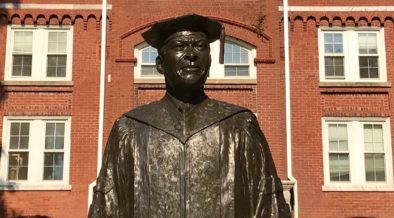Addressing health inequities through community partnerships Leave a comment

By Guest Columnist TODD ELLIS, DHA, principal in KPMG’s Health and Government Solutions practice
Healthcare and access to medical resources is top of mind for many these days. Whether it’s related to the COVID-19 pandemic, health insurance, prescription drug costs or the difficulty of navigating the system, healthcare plays a crucial role in our daily lives. Today, we also recognize there are still barriers that may affect medical access for historically underserved communities.
Todd Ellis
As a proud Atlanta resident, I want to use my knowledge and resources to better the community. I’m a healthcare industry professional who is passionate about diversity, equity, and inclusion. My work experience and knowledge, coupled with my goals and interests, have led to some amazing opportunities for partnerships.
One of the reasons I’ve enjoyed my work over the years is that KPMG prioritizes collaboration with local organizations that share our values and work to improve our communities. Our work with the Morehouse School of Medicine is a great example of building stronger relationships and communities.
Dr. Dominic Mack, the director of the National Center for Primary Care at MSM, has been an indispensable partner in the collaboration between KPMG and MSM. Based in Atlanta, MSM provides excellent training for underrepresented students to become physicians, biomedical scientists, and public health professionals. As part of its ongoing work to provide innovative and unique experiences to its students and the greater Atlanta community, MSM teamed up with KPMG to produce a discussion series.
The discussions feature KPMG subject-matter experts and focuses on using technology, data and analytics to address the need for an improved user experience for doctors, staff and patients. The goal is to share information with MSM students and community leaders and discuss the latest innovations in technology and the healthcare industry while also addressing inequities.
Morehouse School of Medicine’s mission statement focuses on the training of health care professionals and delivering health services to ‘people of color and the underserved urban and rural populations in Georgia.’ (Photo provided by KPMG)
This series of learning is also focused on ensuring we have better trained clinicians and faculty regarding the business of healthcare far beyond that of the classroom and clinical setting. We believe by providing such training, we will heal and treat communities in a more holistic fashion that considers all areas that impacts the way healthcare is delivered.
The series launched in mid-February with a discussion of the digital front door and the need for a more modern, streamlined approach for staff and patient interactions. From a healthcare consumer perspective, it’s not always easy to navigate the best path to care. And oftentimes, the onus is on the patient to do independent research and find the proper resources to access information about primary care providers, pharmacies, and more. The discussion explained this process in greater detail and focused on how to leverage technology to provide better medical access for historically underserved communities and support a more robust user experience for everyone involved.
I’m proud to partner with an institution that trains our future healthcare professionals and serves the Atlanta community and beyond. There are many innovative approaches to better support underserved populations and create better experiences in and beyond the clinical setting for both patients and staff.
KPMG will continue to collaborate with MSM through December to discuss additional topics, including health equity innovation, the use of automation and artificial intelligence in healthcare, healthcare operations, performance improvement, healthcare plans, the future of healthcare, and the use of data to drive change. Ultimately, the hope of these discussions is to leverage our existing knowledge and resources to create better informed doctors, better access to medicine, and better medical outcomes. We need to continue having these conversations and promoting awareness of these critical topics to better support our underserved communities.




